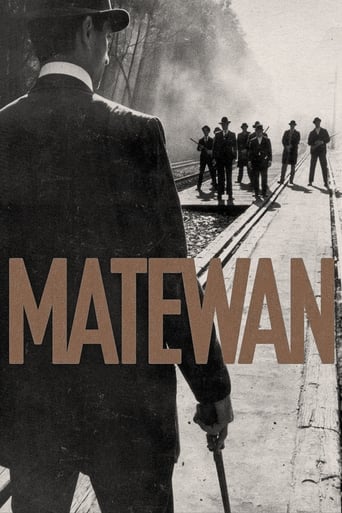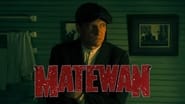gavin6942
A labor union organizer (Chris Cooper) comes to an embattled mining community brutally and violently dominated and harassed by the mining company.The problem with a union movie is that today (2016) the union movement is more controversial than ever. But making it a historical film sort of softens that blow. If anyone needed a union, it was the coal miners of West Virginia who were literally dying on the job. And the film ever mentions the use of company scrip, which is a nice touch because it seems to have been a major problem in its day.Chris Cooper deserves recognition for this film. I feel like he is an actor who has always been under the radar, maybe just being a face people know but a name that never seems to be talked about. Fans of Cooper really ought to start here.
Michael Neumann
Writer director John Sayles turns the pages of history back to West Virginia circa 1920, where overworked and underpaid employees of the Stone Mountain Coal Company attempt to unionize the mines, touching off a violent confrontation with company strikebreakers. The background is perfect for what should have been a tidy little historical drama, but Sayles opts for the romantic approach, with lots of photogenic poverty and soft-focus solidarity. His intentions are honorable, but the film is far too superficial to function as anything more than propaganda: the miners all wear halos, the company gunmen all have forked tails, and the final showdown comes after one too many subplot and campfire sermon. Capable performances and scenic photography aren't enough to compensate for an overplotted, overwritten script, which too often sounds like a grade school primer on early labor organization. The facts demand more than the two-dimensional treatment given here.
Robert J. Maxwell
This is "based on a true story" of the shoot out in the coal-mining town of Matewan, West Virginia, in 1920. The townsfolk are more or less in thrall to the Stone Mountain Coal Company. The company pays its workers in company-issued scrip, not cash, which can be redeemed only at company facilities like the store and the workers' housing. The workers themselves, laboring under dismal and dangerous conditions, must pay for everything a la carte, including their work tools.The miners don't care for the arrangement, nor for the "scab" laborers -- blacks and Italian immigrants -- that the company brings in.Enter the union man Chris Cooper, a Christ-like figure preaching brotherhood and non-violence. He has his hands full getting the townsfolk to work together with the alien black and the Guappos who use corn meal to make something called polenta instead of good old-fashioned corn bread. It gets especially difficult when the Stone Mountain Coal Company hires a couple of mean goons -- Kevin Tighe and Gordon Clappe -- to evict troublesome families from company housing, forcing most of them to live in tents. Sheriff David Strathairn is on the side of the workers and forbids any confrontations in the town.I don't want to get into the plot in too much detail. It's a bit complicated and it leads to a more or less accurately depicted, but nevertheless familiar, shoot out between a dozen or more company thugs and the men and women of the town, with casualties on both sides.It's practically an object lesson in Marxist theory. The people of Appalachia aren't like Southerners. They were yeomen farmers. No big cotton plantations. They didn't object to strong liquor. And when they drink, it's not even bourbon. When the despicable traitor to the cause pours himself a drink, it's a clear liquor. And it's not vodka or gin, it's shine. And the mountain folk weren't wedded to slavery either. That's why we have a "West Virginia" as well as a "Virginia." During the Civil War the governors of one or two Southern states had to send troops into the mountains to quell rebellions against the Confederacy. The "hillbillies" didn't necessarily want to remain in the Union. They wanted to be left alone.Their allegiance seldom extended beyond the local community or "Holler", sometimes not farther than the extended family. As a union organizer, this makes Chris Cooper's job of implementing Marxism that much more difficult. The general idea is to persuade people that their misery isn't their own fault, not due to bad luck or laziness, but to their limited conception of power. Power lies not in loyalty to one's family or small community or ethnic group or race. Marx called that "false consciousness." To liberate themselves, exploited laborers must make the transition to "class consciousness" by realizing that "we're all in this together" and have to exercise collective power.The movie dramatizes this conflict pretty well. It's a bit slow at the beginning but the tension grows quickly after we get to know the principles and their situations.Haskel Wexler's photography adds to the appeal, and the production design is splendid. Note the widow hanging up her laundry. The wooden clothes pins are old, worn, and dark. And she's hanging up a patchwork quilt, a signature artifact in the Mountain South. Even the dialect is fairly accurate. The narrator uses the regional "hit" for "it" -- as in "Hit was in 1920 that the massacre happened." You won't hear that extra "h" in Charleston.The movie uses an assortment of symbols too. In the opening scene, we watch two disgruntled miners tamp a stick of dynamite into the wall of a coal mine and wait at a distance as the fuse burns down. (Get it?) The villagers near the beginning are seen playing a slow, not particularly catchy folk tune on guitar and fiddle. Later, one of the imported black men, James Earl Jones, joins in with a bluesy harmonica. By the end an Italian is playing along with them on a mandolin. (They're all playing the same tune now.) And the approaching train bringing the army of company goons emits great billows of ominous black smoke. (Well, I don't have to draw anybody a picture.) Chris Cooper has a sensitive face and thoughtful demeanor. He's the kind of actor who can -- and has -- gone either way, towards goodness or evil. A marvelous performance from Kevin Tighe as the smiling, confident, slimy villain. The guy has a great big, unashamedly Irish face. He's one of those suave heavies, charming when he's not committing murder. If he were a British heavy he might be James Mason. The poorest -- or let's say least convincing performance -- is from Will Oldham as Danny, the boyish nascent preacher. One winces when listening to him. He doesn't have the accent down, and neither do most of the others. Highland speech is really distinct, still. "Bread" becomes "braid", and a "tomato" is a "mater." James Earl Jones always radiates good will and is both comfortable and comforting. We don't get to see much of the Italians.It's propaganda, of course. Sayles' loyalty is never in question. But it' well-done propaganda and possibly a necessary memento of how bad things can get when Mining Companies are left to their own devices, able to make their own rules about the workers' safety and welfare. Not that the "other side" is endorsed without reservation. At one point, some miners are saved by the intrusion of a strange group of armed and ragged hunters called "Foothill People." They don't hold with cars. They call them "machines" and curse them. And they say things like, "The only law 'round here is the law of nature." I hope the writers didn't intend that as an admirable take on the character of justice.
Emil Bakkum
Being a European I had some difficulty in understanding the occurrences in this film. It tells the true story of the labor conflict of coal miners in Virginia around 1920. They are dissatisfied with the working conditions and go on strike. The company uses the truck-system, and the workers live in company houses. So the company takes with the other hand, what the one has paid out in wages. Right at the start we see the strikers in action while stopping a train and trying to thrash a group of so-called scabs (who apparently were unaware of the prevailing conflict). In addition the strikers employ anarchist methods to intimidate the employer, like sabotage with dynamite sticks. It is not surprising, that the employer has placed a machine gun at the premises. On the other hand the employer himself uses similar methods, and has hired a private security firm in order to intimidate the people. He tries to bribe the mayor and the sheriff. Yes, they still have a real sheriff over there, complete with a badge and belt and pistols on both sides, like an ancient Sam McCloud! Fortunately for the miners, this local establishment remains on their side. When the bandits of the security firm try to evict several families from their company homes, the sheriff maintains that this action is illegal and puts an end to it. However, we as the audience lack the information needed to judge which of the quarreling parties has the supreme law on its side. Luckily we still have the union of miners, and they send an organizer Joe Kenehan into the area. This man is as best as you can get them. He has a social hearth and strongly opposes violence, firstly because it is against his principles, and secondly because the workers will eventually lose an armed battle. The union brings some material support to the strikers, like camping tents, which transform the area into a kind of refugee camp. During the night the company bandits have a raid and fire at random. The climax is reached when two young men try to steal coal, and one of them gets his throat cut by the security bandits. The miners revolt, and a gun battle ensues in which the mining company is temporarily defeated. However, both sides suffer severe losses, among which is the fatally wounded unarmed organizer. The film suggests, that this was the start of a long range of armed collisions between employers and workers. In Europe we have never seen similar scenes, and in my eyes the film looks more like a western than like a film about unionism. Perhaps it has some similarities with the French film Germinal, which however narrates a story about a labor conflict around 1870 - so half a century before! And even in that tragic event the national guard was immediately present as the legitimate defender of the law. I guess the differences reflect the weak position of the authorities in the American Federation. There was hardly any authority or legitimate law in the newly conquered land, and the people had to take matters into their own hands. Of course the most powerful party will always win, but in American states like Virginia there was no strong local or regional authority, that could play the role of mediator in order to mitigate excesses. The narrative suggests that the film director Sayles sympathizes with the miners, but essentially the whole mess turns out to be a display of stupidity. But perhaps this is European prejudice. Apart from this drawback, the acting is convincing, the dialogs are realistic, and the film shots aptly convey the local conditions.





